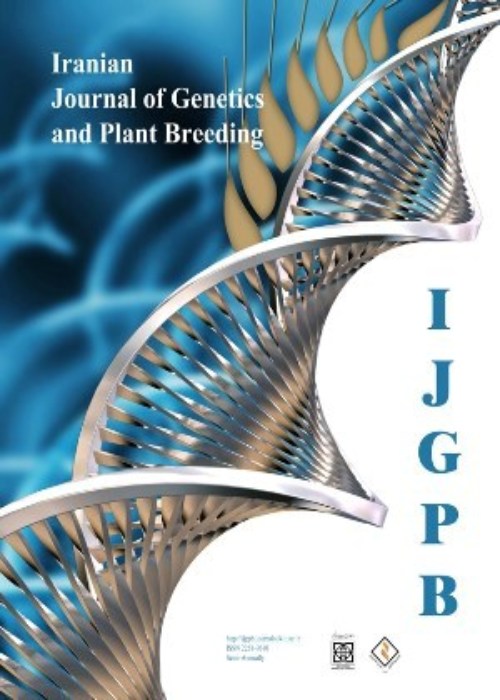Genetic analysis of traits related to grain yield in wheat under drought stress condition by generation mean analysis
Author(s):
Abstract:
In order to study the inheritance of some traits related to grain yield in drought stress conditions in bread wheat (Triticum aestivum L.)، F2، F3 and F4 generations derived from a Kharchia (tolerant) × Gaspard (susceptible) cross and their parents were used separately in a complete randomized block design with two replications. Stem length، biological yield، main spike straw weight، total spike straw weight، grain yield as well as harvest index were measured in different generations. The results of the analysis of variance showed that generations mean squares were significant for all traits. Therefore، the generations mean analysis was performed for all of the traits. The model of four-parameter including m، [d]، [h] and [i] was significantly fitted for the majority of the traits. Although both types of additive and dominance effects were involved in the control of the studied traits but dominant component was more effective than the additive one. Dominance effects and additive × additive epistasis were more important than additive effects and other epistasis components for most traits. Regarding the existence of additive and non-additive effects in controlling studied traits، the recurrent selection followed by pedigree breeding can prove useful in improving drought tolerance in bread wheat.
Keywords:
Language:
English
Published:
Iranian Journal of Genetics and Plant Breeding, Volume:2 Issue: 1, Apr 2013
Pages:
42 to 46
https://magiran.com/p1298969
مقالات دیگری از این نویسنده (گان)
-
Using regression to investigate the relationship between SCoT molecular markers and agronomic and physiological traits of basil under drought stress conditions
Atousa Keshavarzi, Mehdi Rahimi *,
Journal of Agricultural Biotechnology, -
Investigating the effects of moisture stress (water scarcity) on the morphological and physiological characteristics of five basil cultivars
Atousa Keshavarzi, Mehdi Rahimi *,
Journal of Developmental Biology,



